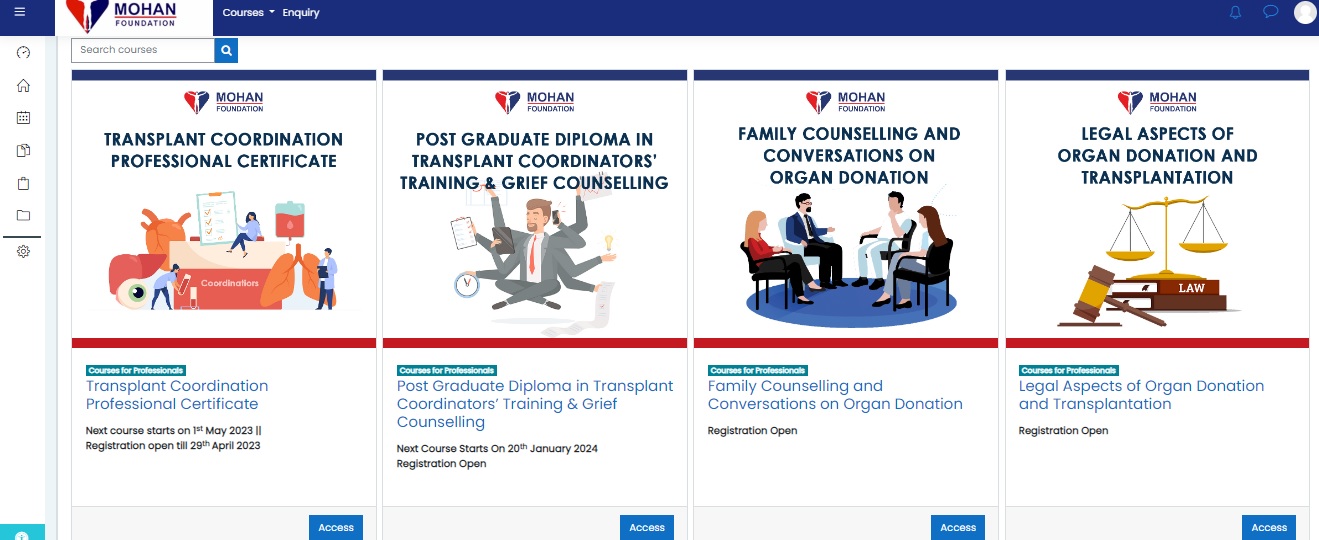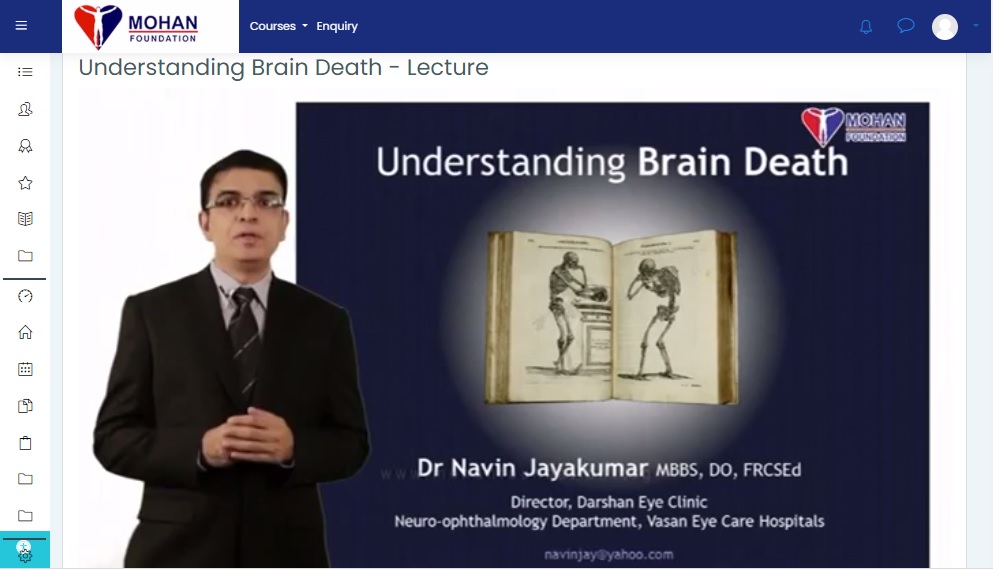Breaking barriers in transplant coordination training: A developing country's experience with online education initiative
Sunil Shroff1, Suajatha Suriyamoorthi1, Jayalakshmi Jairam1, Shanth Ragul Raj2, Poonam Sharma2, Pallavi Kumar1, Lalitha Raghuram1.
1Education & Research, MOHAN Foundation , Chennai, India; 2Education , MOHAN Foundation, Chennai, India
Introduction: Transplant coordinators play a crucial role in the transplant process. In 2009, MOHAN Foundation , a non-government organisation launched structured training programs to provide professionals with the necessary knowledge and skills for transplant coordination. Initially, these training sessions were conducted in-person and ranged from 1 week to one year depending of a candidates experience. However, a 2017 review found that time constraints made it difficult for working professionals to attend. The COVID-19 pandemic in 2020 further eliminated the possibility of in-person training. Consequently from 2017 online e-learning program trainings were initiated and this gained further momentum in 2020.

Methods: A 1 month (converted 1week face to face) is designed for candidates with hospital experience and a one year course "Transplant Coordination Professional Certificate" course is designed specifically for candidates with limited knowledge. The course includes a combination of e-learning and online contact sessions for soft skills, activities, counseling & role play. There are 115 e-learning modules with powerpoint & video lectures addressing medical, legal, ethical, and religious aspects of organ donation & transplantation, as well as grief counseling, and transplant coordination. Additionally, there are films containing simulations on medical and counseling topics, with self-assessments at the end of each module.

Access to the course was at convenience with attendence to weekend webinars with guest lectures, study material reviews, interactive sessions, and role play. Polls and quizzes are incorporated during the webinars, and participants are given assignments.
The course fee is US$50 for the one-month option and US$200 for the one-year course. Upon passing the final online examination, participants receive a course completion certificate.
Results: The online education initiative has attracted participants from India and abroad, with 721 candidates trained between 2017 and 2022. The candidate profiles included doctors (14%), nurses (17%), social workers (13%), transplant coordinators (24%), and others (32%). When evaluating the course content's effective presentation, 52% strongly agreed, 47% agreed, and 1% disagreed. The overall course ratings were excellent or very good for 89% of participants, good for 10%, and fair for 1%.
There were 700 candidates trained for across India and 21 from countries such as Vietnam, Qatar, Nepal, Spain, Pakistan, Botswana, Malaysia, Nigeria, Singapore, and Bangladesh.
Conclusion: MOHAN Foundation introduced online transplant coordination training initiatives in 2017, offering flexible and accessible education. Between 2017 and 2022, 721 candidates from various countries completed the programs with high satisfaction levels, successfully expanding the reach of transplant coordination training overcoming previous obstacles related to time constraints and in-person sessions.